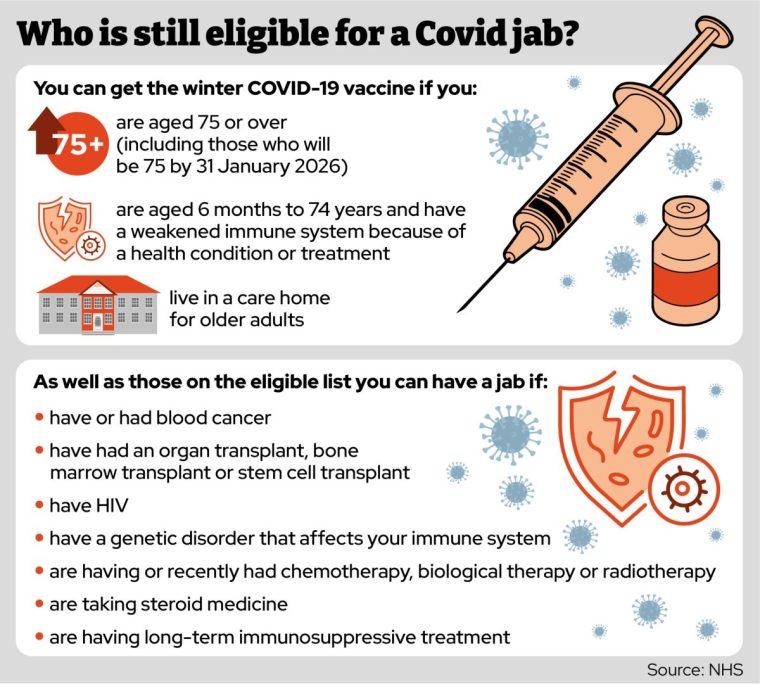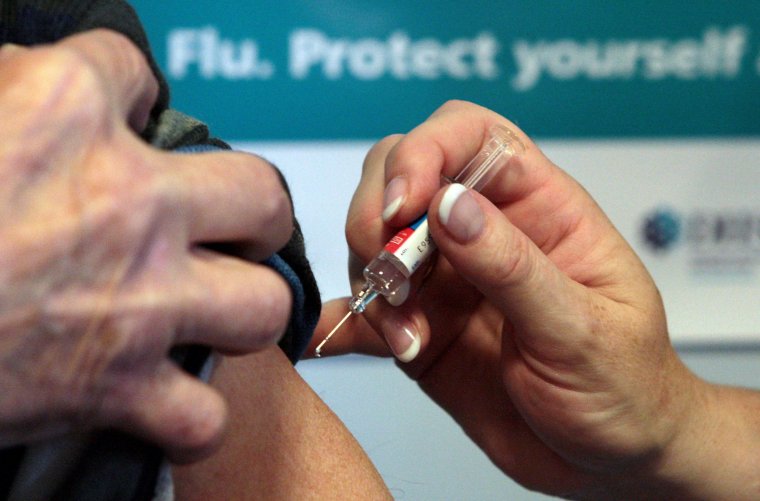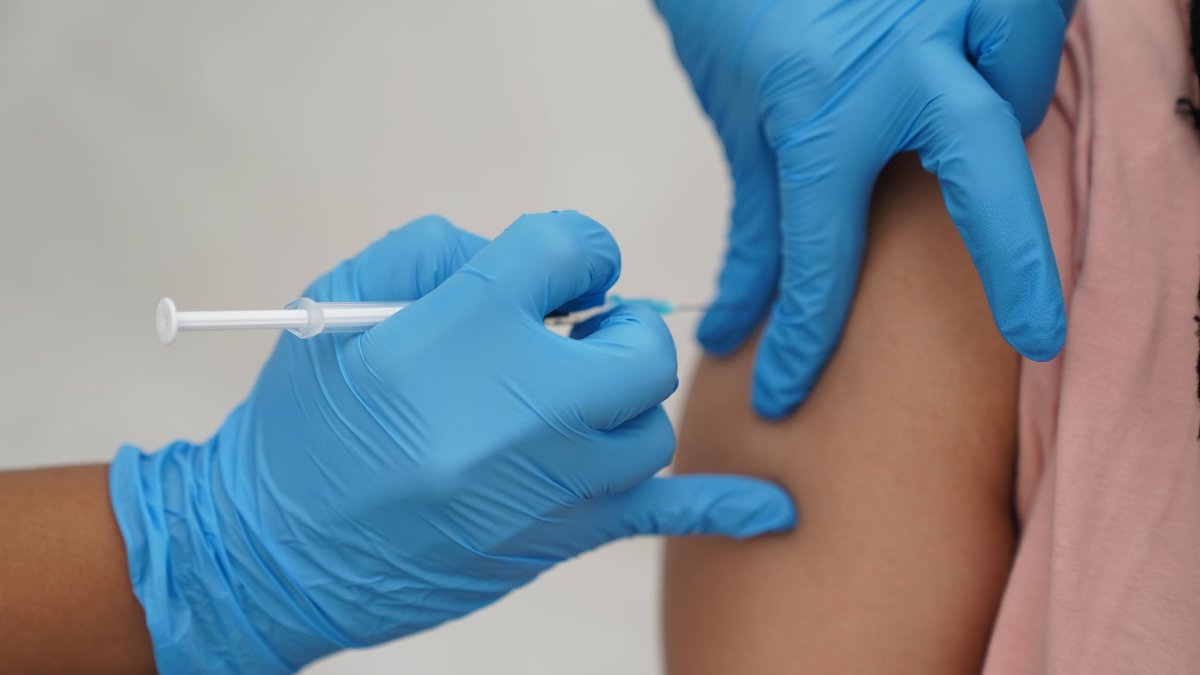Ministers are under pressure to U-turn on the decision to limit access to the Covid vaccine over fears it is creating a two-tier healthcare system as demand for private jabs soars.
Research suggests that mRNA Covid jabs could improve cancer outcomes, with experts suggesting further discoveries could be jeopardised with the rollback of the NHS vaccine programme.
It is understood that some 13 million people who were eligible for a booster in autumn 2024 can no longer get the jab for free via the NHS following a significant change to eligibility criteria.
New FeatureIn ShortQuick Stories. Same trusted journalism.
Now, only adults aged 75 and over, residents in older adult care homes and immunosuppressed individuals aged six months and over can get the jabs for free.
Scaling back the Covid vaccine rollout at this time is “bizarre”, said Stephen Griffin, a professor of cancer virology at the University of Leeds.
“We don’t know enough about the effects of Covid in the long term yet to understand what may or may not happen from people getting that infection and making their disease worse in other respects,” he said.
More and more people are paying up to £100 to get vaccinated against Covid privately as cases have crept up in recent weeks ahead of winter.
Although case rates have begun to fall, cases hit a high of 6.05 cases per 100,000 over a seven-day period – the highest level in a year.
Covid jabs ‘turbo-charging’ cancer treatment
A new study has found that patients with lung or skin cancer who had an mRNA jab within 100 days of starting immunotherapy survived for significantly longer than those who did not get the vaccine, according to research published in the journal Nature.
Professor Elias Sayour, a paediatric oncologist at the University of Florida and co-senior author of the paper, said researchers are “rapidly” moving forward to a phase III trial – a larger, typically randomised trial that compares a new treatment to the standard treatment or a dummy drug. It is hoped this will answer whether Covid-19 mRNA vaccines make tumours more vulnerable to immunotherapy, which harnesses the immune system to attack cancer cells.
 The Covid jab autumn scheme
The Covid jab autumn scheme
It is hoped the trial will be completed over the next three to five years. Professor Sayour said it has “the potential to be a universal tool to sensitise immunotherapy response across different cancer patients”.
Professor Griffin said while there are caveats to the study’s findings, it is an exciting opportunity. He warned that such discoveries could be at risk as a result of rolling back the NHS vaccine programme.
He said the link, although currently only known to be an associate one, was partly discoverable because of the scale and timespan of the vaccine rollout.
“It’s most likely because so many were given out in such a short period. The emergency vaccine response was very condensed over a period of a few years to a very large proportion of the population, which is why it’s something that’s relatively straightforward to measure in terms of an event that is happening,” Professor Griffin said.
Under the new NHS eligibility criteria, patients in clinical risk groups, including those with chronic respiratory disease such as asthma, chronic heart disease, chronic kidney or liver disease and neurological diseases such as Parkinson’s, MS and epilepsy, are no longer offered the jab.
It follows updated advice from the Joint Committee on Vaccination and Immunisation, which said that now Covid is a relatively mild disease for most, the greatest benefit from further doses is for those at the highest risk.
Professor Griffin said: “Why are the vulnerable groups that receive an influenza vaccine not receiving a Covid vaccine? Why are children not receiving a Covid vaccine?
 The flu jab is available to a wider cohort of people than the Covid vaccines (Photo: David Cheskin/PA)
The flu jab is available to a wider cohort of people than the Covid vaccines (Photo: David Cheskin/PA)
“It is befuddling to me as to why. To me, this is a no-brainer.”
Earlier this month, The i Paper revealed the number of people requesting a private Covid vaccine this month is expected to be three times higher than last October, following the Government’s decision to tighten restrictions on the free jabs.
Malcolm Harrison, chief executive of the Company Chemists’ Association, said it has received reports of higher demand for Covid vaccines.
“Our members are seeing an uptick in private Covid vaccinations this year.
“I can only hypothesise as to why we’re seeing it, but it would stand to reason that people that are concerned about Covid and want to make sure they’re covered are no longer able to get it through the NHS, there’ll be a cohort of those who would be prepared and able to pay for it themselves.”
Professor Griffin said it is no surprise there has been a “huge surge” in demand for the vaccine given its continued importance, and the decision to scale back the vaccine programme even further risks fostering a two-tier healthcare system.
“Vaccine uptake is a complicated process and it’s about making it as convenient and easy for people, combined with educating them about the benefits, as possible.
“And we already know that demographics make a huge difference in terms of who takes up vaccines if they’re free, so if you’re then charging nearly £100 for one, then that just adds an extra layer of difficulty and it creates what you would call a two-tier health system for me.
“It means that those least well off are not going to be able to be protected, which, for a country that prides itself on accessing healthcare free at the point of care, I think is wrong. And just the price of it as well is crazy.
“What we’re doing is expanding health inequality by having the accessibility of these vaccines limited, and I think that’s a real shame.”
Clinically Vulnerable Families, a core participant in the UK Covid-19 inquiry, has launched a petition calling for the Government to fund wider access to NHS Covid boosters.
Lara Wong, founder of the organisation, said: “The NHS founding principle is that care should be based on clinical need, not an individual’s ability to pay. Nye Bevan would be turning in his grave to see a Labour government sanction this decision. Those at higher risk still qualify for flu vaccines, but are now expected to pay £100 to be protected from Covid or go without. It is a false economy.”
Ms Wong added: “If the UK government doesn’t rapidly U-turn on this dangerous policy to restore these essential seasonal NHS Covid vaccines, they will not only add to the inevitable winter NHS ‘crisis’, but will have blood on their hands.”
A Department of Health and Social Care spokesperson said: “Eligibility for COVID-19 vaccination is based on expert advice from the Joint Committee on Vaccination and Immunisation (JCVI). The autumn 2025 vaccination programme targets people who are at the highest risk of serious illness.
“Those with a long-term health condition no longer automatically qualify for a free Covid vaccine unless they are immunosuppressed.
“If an individual has any concerns about their eligibility for Covid-19 vaccination, they should contact their GP.”

